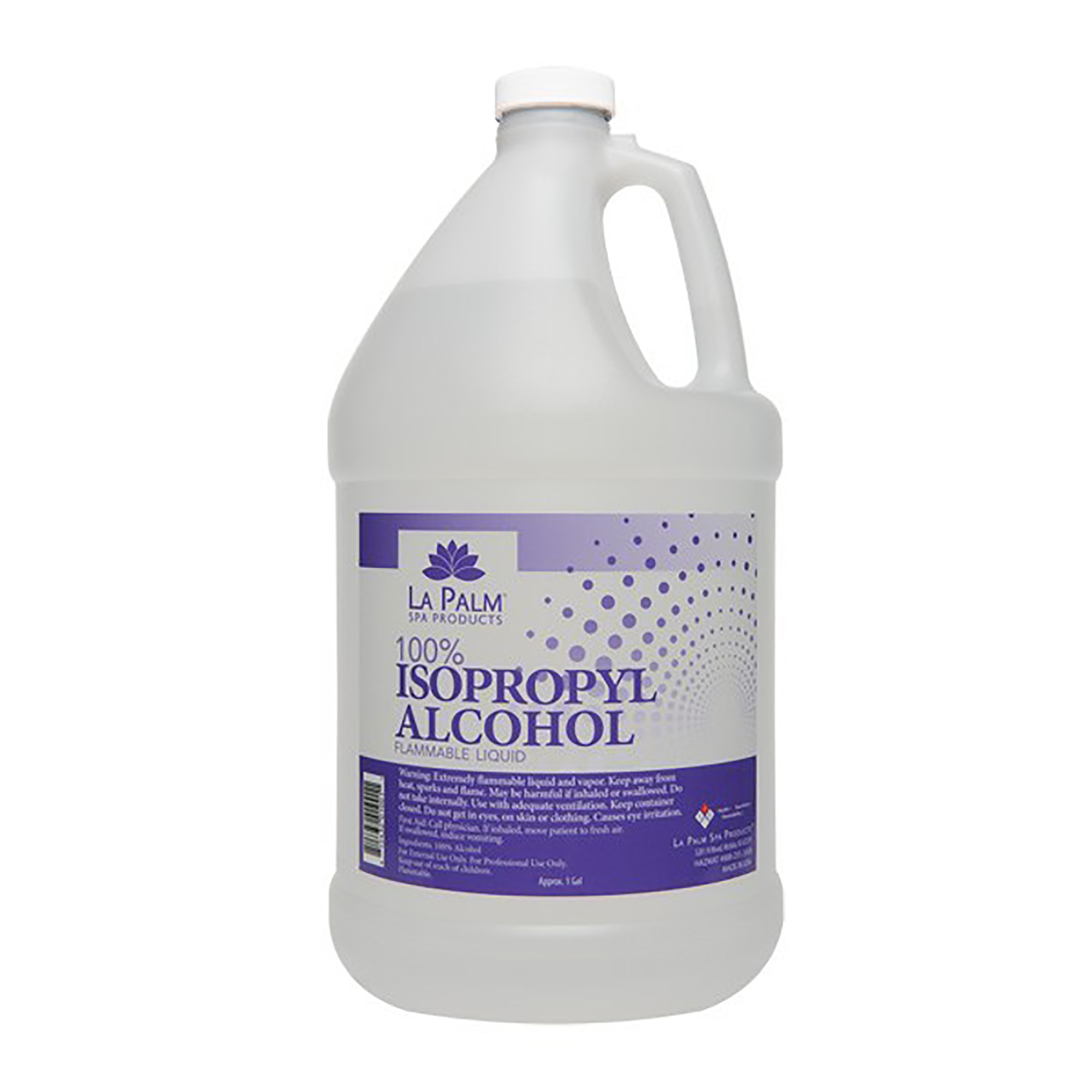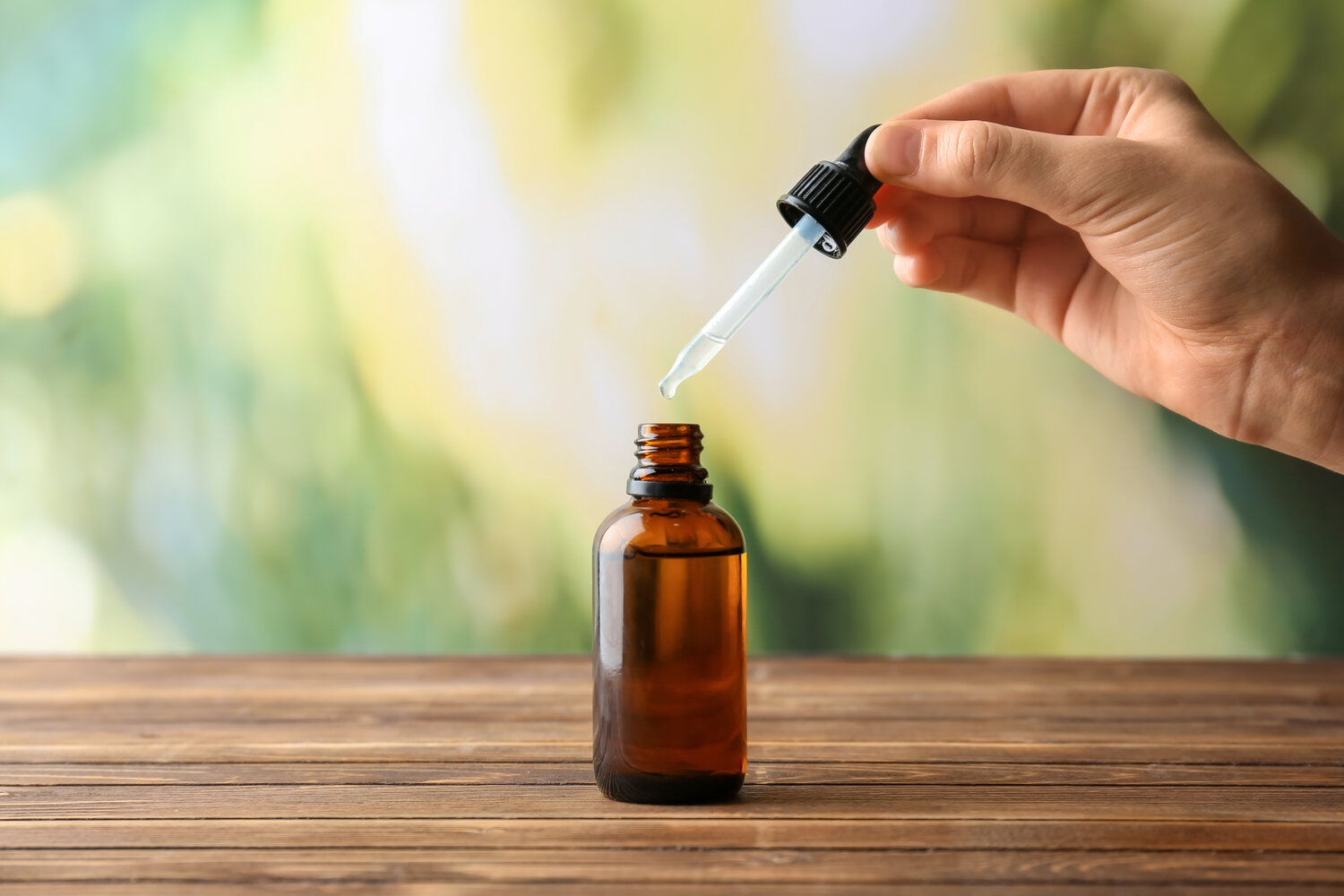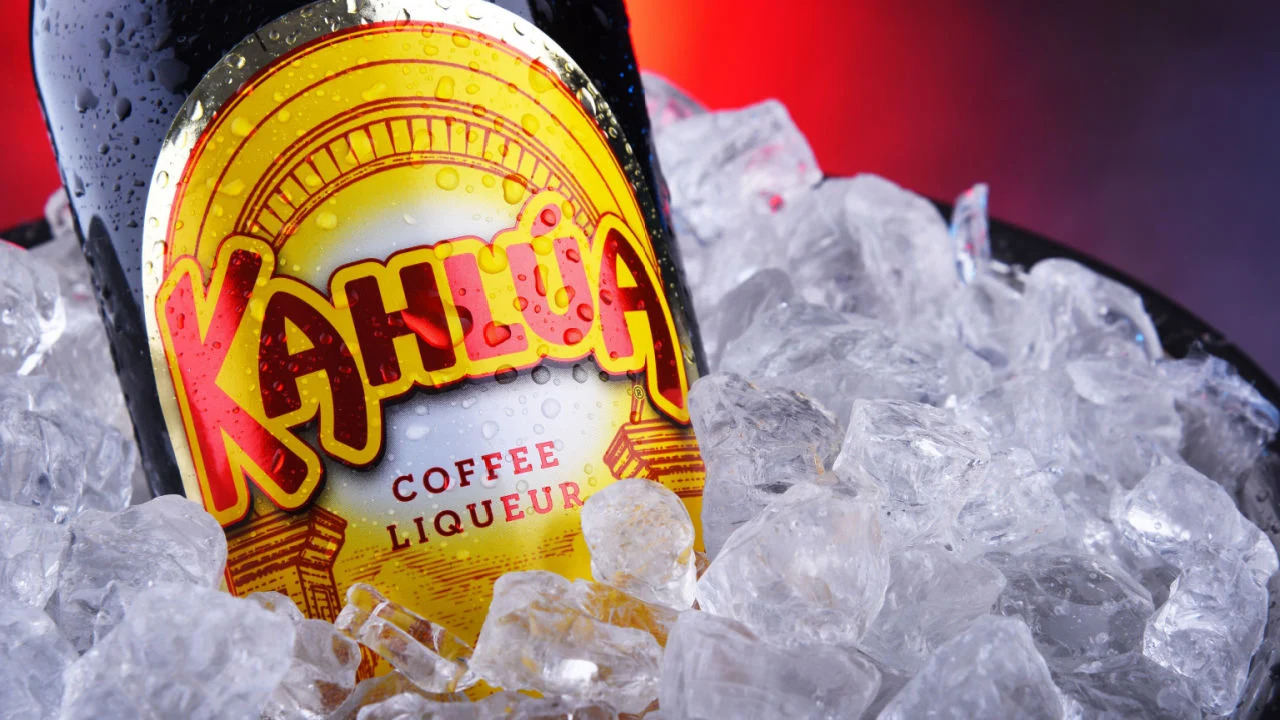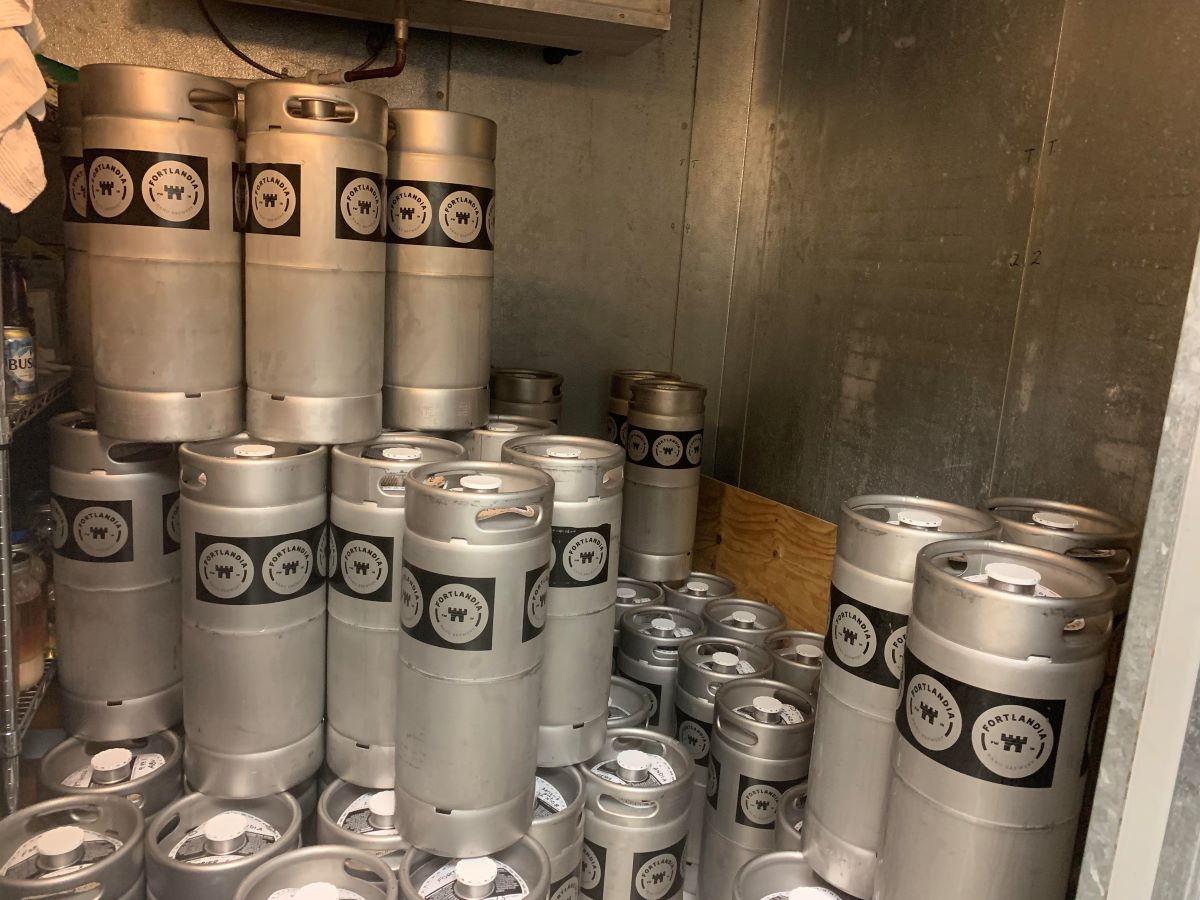

Articles
How To Store Isopropyl Alcohol
Modified: August 25, 2024
Learn the most effective ways to store isopropyl alcohol safely and securely. Read our informative articles for helpful tips and guidelines.
(Many of the links in this article redirect to a specific reviewed product. Your purchase of these products through affiliate links helps to generate commission for Storables.com, at no extra cost. Learn more)
Introduction
Isopropyl alcohol, also known as rubbing alcohol, is a common household product with a wide range of uses. It is a versatile solvent and cleaning agent, commonly used for disinfecting surfaces, removing sticky residues, and even as a fuel for small camping stoves. Due to its flammable nature, it is important to store isopropyl alcohol safely to avoid any accidents or hazards.
In this article, we will discuss the proper storage of isopropyl alcohol, including safety precautions, choosing the right containers, ideal storage conditions, and steps to take to prevent exposure to heat and fire. We will also delve into the importance of protecting isopropyl alcohol from light and oxygen, as well as keeping it away from incompatible materials. Additionally, we will address the storage of isopropyl alcohol in different concentrations, proper labeling and documentation, and the safe disposal of this chemical.
By following these guidelines, you can ensure the longevity and effectiveness of your isopropyl alcohol, while also minimizing the risk of accidents or chemical reactions. So let’s dive into the details of storing isopropyl alcohol safely and responsibly.
Key Takeaways:
- Store isopropyl alcohol in well-ventilated, cool areas away from heat and incompatible materials. Prioritize safety, choose suitable containers, and follow proper disposal guidelines to ensure safe and effective usage.
- Properly label and document isopropyl alcohol containers, adhere to safety precautions, and dispose of it responsibly. By following storage guidelines and prioritizing safety, you can ensure the longevity and effectiveness of this versatile household product.
Read more: How To Store A Scoby
Safety Precautions
When handling and storing isopropyl alcohol, it’s crucial to prioritize safety to prevent accidents and ensure the well-being of yourself and others. Here are some essential safety precautions to follow:
- Always store isopropyl alcohol in a well-ventilated area. This helps to prevent the buildup of vapors that can be harmful when inhaled.
- Avoid smoking or open flames near isopropyl alcohol storage areas. Isopropyl alcohol is highly flammable and can easily ignite, leading to fires or explosions.
- Keep isopropyl alcohol out of reach of children and pets. Ensure that it is stored in a secure location, preferably in a locked cabinet or container.
- Wear protective gloves and goggles when handling isopropyl alcohol, as it can be an irritant to the skin and eyes. In case of accidental contact, rinse the affected area with water and seek medical attention if irritation persists.
- Do not consume isopropyl alcohol under any circumstances. It is toxic when ingested and can cause severe health complications.
- Do not mix isopropyl alcohol with other chemicals unless explicitly instructed to do so. Mixing certain substances can result in hazardous reactions or the release of toxic fumes.
- Ensure sufficient ventilation when using isopropyl alcohol for cleaning or disinfection purposes. Open windows or use exhaust fans to remove vapors from the area.
- In case of a spill, clean it up immediately using absorbent materials and dispose of them according to local regulations.
By adhering to these safety precautions, you can significantly reduce the risk of accidents and ensure safe handling and storage of isopropyl alcohol. Remember, prioritizing safety is of utmost importance when dealing with any chemical substance.
Choosing the Right Container
Choosing the right container for storing isopropyl alcohol is vital to maintain its quality and prevent any leakage or spills. Here are some factors to consider when selecting a suitable container:
- Material: Opt for containers made of high-density polyethylene (HDPE), polypropylene (PP), or glass. These materials are compatible with isopropyl alcohol and help to prevent any chemical reactions or degradation.
- Tightly Sealed: Ensure that the container has a secure and tight-sealing lid or cap to prevent evaporation and maintain the potency of the isopropyl alcohol.
- Opaque or Amber-colored: Isopropyl alcohol is sensitive to light and can degrade when exposed to direct sunlight or UV rays. Choose a container that is opaque or amber-colored to provide protection against light exposure.
- Size: Consider the quantity of isopropyl alcohol you will be storing and select a container size accordingly. Smaller containers are more convenient for regular household use, while larger containers may be necessary for commercial or industrial purposes.
- Labeling: Ensure that the container is properly labeled with the name of the substance (isopropyl alcohol), its concentration, and any relevant warning symbols or hazard labels. This will help identify the contents and provide important safety information.
- Secondary Containment: If storing a large quantity of isopropyl alcohol or if required by local regulations, consider using secondary containment measures, such as spill trays or bins, to contain any potential leaks or spills.
By choosing the right container for your isopropyl alcohol, you can ensure its integrity and longevity. Remember to always check the container for any damage or leaks before storing the alcohol and replace it if necessary.
Ideal Storage Conditions
Proper storage conditions are essential for maintaining the quality and effectiveness of isopropyl alcohol. Here are the ideal storage conditions to follow:
- Temperature: Store isopropyl alcohol in a cool, well-ventilated area with a temperature between 15°C (59°F) and 25°C (77°F). Avoid storing it in areas with extreme temperatures or fluctuations, as this can affect its stability and potency.
- Humidity: Isopropyl alcohol is hygroscopic, meaning it absorbs moisture from the air. To prevent any contamination or degradation, ensure that the storage area has low humidity levels or use desiccants to absorb excess moisture.
- Avoid Freezing: Isopropyl alcohol can freeze at low temperatures. If the storage area is prone to freezing, consider using a heating element or insulation to prevent the alcohol from freezing and potentially damaging the container.
- Elevation: Store isopropyl alcohol containers at ground level or on a lower shelf to minimize the risk of falling or toppling over. This will help prevent accidents and ensure the safety of those around the storage area.
By storing isopropyl alcohol in these ideal conditions, you can maintain its effectiveness and extend its shelf life. Remember to regularly inspect the storage area for any signs of damage, leaks, or contamination, and take appropriate action if needed.
Avoiding Exposure to Heat and Fire
Given its flammable nature, it is crucial to take precautions to avoid exposing isopropyl alcohol to heat and fire. Here are some important steps to follow:
- Store isopropyl alcohol away from sources of heat, flames, and ignition devices. Keep it in a cool area that is well-ventilated and away from direct sunlight.
- Avoid storing isopropyl alcohol near electrical outlets, hot surfaces, or any equipment that generates heat.
- Ensure that there are no open flames or sparks in the vicinity of the storage area. This includes cigarettes, candles, lighters, or any other potential sources of ignition.
- If using a heating element or warming device to prevent freezing, make sure it is properly installed and designed for such purposes. Follow the manufacturer’s instructions and maintain a safe distance between the heating element and the isopropyl alcohol container.
- In case of a fire, do not attempt to extinguish it with water, as isopropyl alcohol is not water-soluble and may spread the fire. Use an appropriate fire extinguisher designed for flammable liquid fires, follow safety protocols, and contact emergency services if necessary.
Remember, prevention is key when it comes to avoiding exposure of isopropyl alcohol to heat and fire. By taking these precautions, you can significantly reduce the risk of accidents and ensure the safety of yourself and others.
Read more: How To Store Wines
Protecting from Light and Oxygen
Isopropyl alcohol is sensitive to light and oxygen, which can degrade its quality and effectiveness over time. To ensure its longevity, it is important to protect isopropyl alcohol from exposure to light and oxygen. Here are some guidelines to follow:
- Use opaque or amber-colored containers: Isopropyl alcohol should be stored in containers that provide protection against light exposure. Opaque or amber-colored containers block out harmful UV rays that can degrade the alcohol.
- Tightly seal the container: Oxygen can react with isopropyl alcohol and cause degradation. Ensure that the container is tightly sealed after each use to prevent oxygen from entering.
- Avoid excessive headspace: When storing isopropyl alcohol, make sure the container is filled to the recommended level, leaving minimal headspace. This helps to minimize the amount of oxygen trapped inside the container.
- Store in a dark environment: Keep the isopropyl alcohol container in a cool, dark area away from direct sunlight or UV light sources. Consider using cabinets or drawers for additional protection against light exposure.
Following these guidelines will help preserve the quality and potency of your isopropyl alcohol. By protecting it from light and oxygen, you can ensure its efficacy when needed.
Store isopropyl alcohol in a cool, dry place away from direct sunlight and sources of heat. Keep it tightly sealed in its original container to prevent evaporation and contamination.
Keeping Away from Incompatible Materials
It is important to store isopropyl alcohol away from incompatible materials to prevent any chemical reactions or hazards. Here are some substances and materials to keep isopropyl alcohol away from:
- Flammable liquids: Store isopropyl alcohol separately from other flammable liquids, such as gasoline, acetone, or paint thinners. Mixing these substances can increase the risk of fire or explosions.
- Strong oxidizers: Keep isopropyl alcohol away from strong oxidizing agents, such as hydrogen peroxide or concentrated acids. Mixing isopropyl alcohol with these substances can result in hazardous reactions or the release of toxic gases.
- Alkalis: Avoid contact between isopropyl alcohol and alkaline substances, such as sodium hydroxide or ammonia. Mixing isopropyl alcohol with alkalis can lead to chemical reactions and the production of flammable or toxic vapors.
- Chlorine-based compounds: Isopropyl alcohol should be kept separate from chlorine-based compounds, including bleach or pool chemicals. Mixing these substances can generate toxic fumes and pose health hazards.
- Electrical equipment: Do not store isopropyl alcohol near electrical equipment or devices, as it can increase the risk of electrical fires or damage to the equipment.
- Food and beverages: Keep isopropyl alcohol away from food items and beverages. Accidental ingestion of isopropyl alcohol can have serious health consequences and should be avoided at all costs.
By storing isopropyl alcohol away from incompatible materials, you can minimize the risk of chemical reactions, accidents, and potential hazards. It is important to know the properties of substances and practice proper storage and handling to ensure safety.
Storing Isopropyl Alcohol in Different Concentrations
Isopropyl alcohol is available in various concentrations, ranging from 70% to 99%, with the most common being 70% and 90%. Different concentrations may have different storage requirements due to their varying properties. Here are some guidelines for storing isopropyl alcohol in different concentrations:
- 70% Isopropyl Alcohol: This concentration is commonly used for general cleaning, disinfecting, and first aid purposes. It is less volatile than higher concentrations and has better antimicrobial properties. Store 70% isopropyl alcohol in a cool, well-ventilated area away from open flames. Ensure that the container is tightly sealed to prevent evaporation.
- 90% Isopropyl Alcohol: This concentration is more potent and commonly used for specialized cleaning and disinfection. It evaporates more quickly than 70% isopropyl alcohol and should be stored under similar conditions. Keep it in a cool, well-ventilated area away from heat sources and tightly seal the container to prevent evaporation.
- Other Concentrations: Isopropyl alcohol concentrations above 90% are less common and often used for specific industrial or medical purposes. These higher concentrations are generally more flammable and volatile, requiring extra precautions in storage and handling. Follow the manufacturer’s instructions for storing and using these concentrations, and consult the appropriate safety guidelines.
Regardless of the concentration, it is important to label the containers clearly with the concentration percentage and follow the recommended storage guidelines provided by the manufacturer. Always ensure that the containers are securely sealed to prevent evaporation and minimize the risk of spills or leaks.
Proper Labeling and Documentation
Proper labeling and documentation are essential when storing isopropyl alcohol to ensure safety and facilitate its proper use. Here’s why it’s important and what you should include:
- Identification: Clearly label the containers with the name of the substance, “Isopropyl Alcohol,” to avoid any confusion with other chemicals.
- Concentration: Indicate the concentration percentage of the isopropyl alcohol on the label. This information is crucial for proper handling and usage.
- Hazard Warnings: Include appropriate hazard symbols and warnings on the label to indicate the flammability and potential health hazards associated with isopropyl alcohol.
- Storage Instructions: Provide specific storage instructions on the label, such as storing in a cool, well-ventilated area, away from direct sunlight, and sources of ignition.
- Emergency Contact Information: Include contact details for emergency services or poison control centers in case of accidents or mishandling.
- Record Keeping: Maintain a record of the date of purchase, batch number (if applicable), and any other relevant information for future reference and traceability.
Proper labeling and documentation not only help to prevent misuse or mishandling but also ensure that isopropyl alcohol is stored and used in accordance with safety regulations and guidelines. It aids in easy identification, reduces the risk of accidents, and assists with emergency response if needed.
Read more: How To Store Hennessy
Disposal of Isopropyl Alcohol
Proper disposal of isopropyl alcohol is necessary to protect the environment and ensure safety. Here are guidelines to follow when disposing of isopropyl alcohol:
- Check local regulations: Before disposing of isopropyl alcohol, familiarize yourself with the specific guidelines and regulations in your area. Some jurisdictions may have specific instructions or facilities for hazardous waste disposal.
- Evaporation: If you have a small quantity of isopropyl alcohol, you can let it evaporate in a well-ventilated area. Place the alcohol in a shallow container and allow it to evaporate completely. Make sure to place the container away from open flames or heat sources during evaporation.
- Chemical disposal facilities: If you have a large quantity of isopropyl alcohol or if it is contaminated with other substances, it is recommended to take it to a designated chemical waste disposal facility. These facilities are equipped to handle and dispose of hazardous materials safely.
- Recycling programs: Some areas may have recycling programs for isopropyl alcohol or other hazardous materials. Research local recycling centers or programs that accept such substances and follow their guidelines for proper disposal.
- Do not pour down drains or toilets: It is important to never pour isopropyl alcohol down drains or toilets, as it can contaminate water sources and harm the environment.
- Secure storage: Until you can properly dispose of isopropyl alcohol, store it in a tightly sealed container away from heat or ignition sources. Keep it out of reach of children and pets to prevent any accidental exposure.
Remember, responsible disposal of isopropyl alcohol is necessary to protect ourselves, others, and the environment. Always follow local regulations and guidelines to ensure proper disposal methods are followed.
Conclusion
Proper storage of isopropyl alcohol is crucial to ensure safety, maintain its effectiveness, and prevent accidents or hazards. By following the guidelines outlined in this article, you can store isopropyl alcohol safely and responsibly in your home or workplace. Remember to prioritize safety precautions, choose the right containers, and store the alcohol in ideal conditions, away from heat, light, and incompatible materials.
Labeling and documenting the isopropyl alcohol containers is essential for easy identification and proper handling. Additionally, it is important to dispose of isopropyl alcohol correctly, whether through evaporation or by utilizing designated waste collection facilities.
By adhering to these practices, you can ensure the longevity and effectiveness of your isopropyl alcohol, while minimizing the risk of accidents or chemical reactions. Remember, safety should always be the top priority when dealing with any chemical substance.
Please note that the information provided in this article is for general guidance only. It is recommended to consult and comply with local regulations and guidelines specific to your region or jurisdiction regarding the storage and disposal of isopropyl alcohol.
Take the necessary steps to store and handle isopropyl alcohol responsibly, and enjoy the benefits of having a versatile cleaning and disinfecting agent on hand while maintaining a safe environment.
Frequently Asked Questions about How To Store Isopropyl Alcohol
Was this page helpful?
At Storables.com, we guarantee accurate and reliable information. Our content, validated by Expert Board Contributors, is crafted following stringent Editorial Policies. We're committed to providing you with well-researched, expert-backed insights for all your informational needs.














0 thoughts on “How To Store Isopropyl Alcohol”